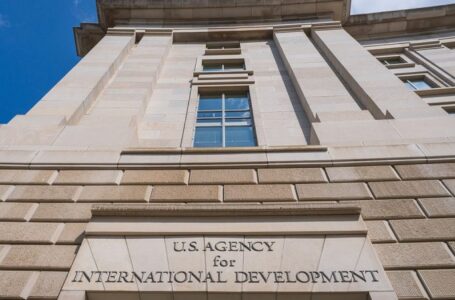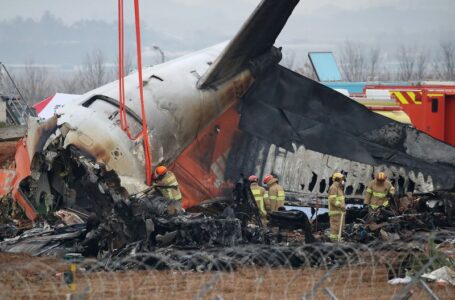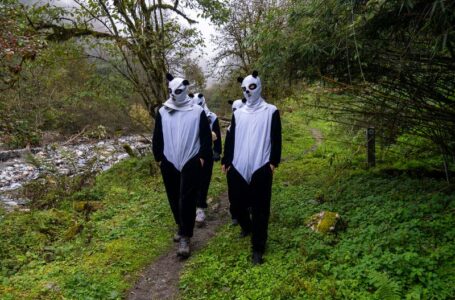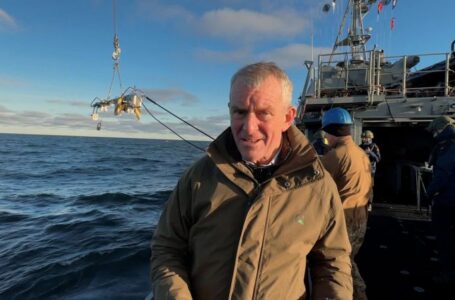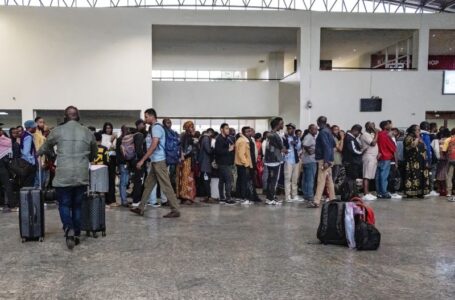Rubio pauses foreign aid from State Department and USAID to ensure it puts ‘America First’
Belarus president set to extend 30-year rule as critics slam ‘sham’ election

Belarusians are voting in a closely managed presidential election that is all but certain to extend the rule of Alexander Lukashenko, in power since 1994 and Europe’s longest-serving leader.
The last time Belarus held a presidential election in 2020, Lukashenko claimed a landslide victory with more than 80% of the vote. The opposition cried foul, claiming that Sviatlana Tsikhanouskaya was the rightful winner. Hundreds of thousands protested in the capital, Minsk, sparking the harshest crackdown in the country’s post-Soviet history.
This year, with voting underway, Tsikhanouskaya is not asking Belarusians to take to the streets again. The costs are too high, she says.
She should know. Since the brutal regime response in 2020, Tsikhanouskaya has lived in exile with her two children. Human rights activists say Belarus is holding more than 1,200 political prisoners, including Tsikhanouskaya’s husband, Sergei, whom she has been unable to contact for nearly two years.
Tsikhanouskaya only ran in 2020 after her husband was jailed and prevented from running. Perhaps underestimating the political novice, Lukashenko allowed Tsikhanouskaya to run against him – an oversight that led to the greatest threat he faced in his decades-long rule.
Now, Lukashenko is facing only token challengers, one of whom has said he is running “not instead of, but alongside the president.” For the first time, no independent observers will monitor the vote and polling stations abroad will not be open, depriving some 3.5 million citizens outside the country of their vote.
While not calling for large-scale demonstrations, Tsikhanouskaya has urged Belarusians to voice their dissent at the ballot box.
“We’re asking those forced to take part in this sham election to vote against all candidates,” she wrote on Telegram.
Tsikhanouskaya’s opposition movement has said the “elections” are merely “a meticulously orchestrated charade designed to perpetuate the illegitimate dictator’s grip on power.” The European Parliament and US State Department have also labelled the election a “sham.”
“Repression is born of weakness, not strength. The unprecedented measures to stifle any opposition make it clear that the Lukashenko regime fears its own people,” the State Department said last week.
After casting his ballot Sunday, Lukashenko told journalists he did not care whether the West recognizes Belarus’ election or not.
Lukashenko, a 70-year-old former Soviet collective farm boss, survived the scare in 2020 in part thanks to his longtime ally Russian President Vladimir Putin, whose support has become existential for the Belarusian regime.
After state media employees resigned in solidarity with the opposition, Putin sent Kremlin propagandists to replace them. Since then, Minsk’s dependence on Moscow has only deepened.
But Moscow has been exacting a price for its support. Russia used Belarus as a launch pad for its full-scale invasion of Ukraine in 2022, and Lukashenko has since allowed Russia to deploy tactical nuclear weapons on Belarusian soil. In December, Lukashenko said he was also preparing to receive Russia’s new ballistic missile, the “Oreshnik,” first used in a strike on Ukraine late last year.
Although Lukashenko is “more dependent on Russia and on Putin personally than ever before,” there may be limits to this alliance, said Gould-Davies, now a senior fellow for Russia and Eurasia at the International Institute for Strategic Studies, a think-tank.
“Belarus has provided a wide range of valuable services to Russia, but the thing of course that it hasn’t done is send its own forces (to Ukraine),” he said, suggesting he may fear a backlash among his own troops or wider population if he did so.
“Ordinary Belarusians, emphatically, do not see this as their war, and they could not be persuaded that it is, no matter how much propaganda the Belarusian state were to pump out to them,” he said.
Since 2020, Lukashenko’s regime has stepped up its efforts to stamp out dissent. By the end of December 2024, Belarus was holding 1,265 political prisoners, according to Viasna, a human rights group.
Among them is Ales Bialiatski, the founder of Viasna who received the Nobel Peace Prize in 2022, alongside human rights groups from Russia and Ukraine, for his documentation of rights abuses. The oldest prisoner is Mikhail Liapeika, 76, who was sent for compulsory psychiatric treatment after insulting Lukashenko.
Pavel Sapelka, a lawyer with Viasna, has said many detainees are held in conditions and subjected to treatment that amounts to “torture.”
Lukashenko will be 74 if he completes his seventh term in office. But he has given no indication that he intends to step down. “As long as I have health, I will stay with you,” he said during a visit to a church outside Minsk earlier this month.
Last week, Lukashenko mocked opposition leaders he said were waiting for him to “drop dead.”
“They say: ‘He is about to die, his voice is not the same, he has trouble speaking.’ Don’t hold your breath,” Lukashenko said.

